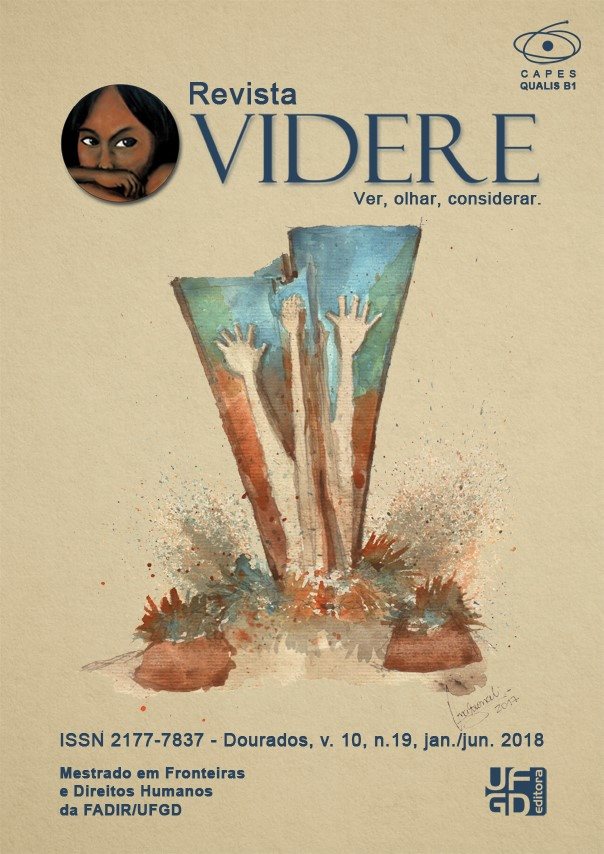Direitos Humanos linguísticos: o idioma como instrumento de manutenção da dignidade humana do imigrante.
DOI:
https://doi.org/10.30612/videre.v10i19.6246Keywords:
Direitos humanos. Direitos linguísticos. Migrantes. Dignidade da pessoa humana.Abstract
A presente análise pretende demonstrar a importância dos direitos linguísticos na manutenção da dignidade humana dos imigrantes. Para tanto, parte-se da Declaração Universal dos Direitos Linguísticos que, pode-se dizer, além de baseada na Declaração Universal dos Direitos Humanos, vem suprir uma enorme lacuna nessa em seu intuito de proteção. O lapso encontrar-se-ia na abstração do ser humano idealizado na Declaração, em sua falta de concretude. De encontro a essa abstratividade do ser, a ideia da presente pesquisa baseia-se nos direitos linguísticos como um instrumento a garantir que os problemas de cada sociedade em particular sejam tratados de acordo com sua especificidade cultural. Para tanto, leva-se em consideração que para preservação da dignidade das pessoas, não se pode desconsiderar que a cultura é integrante indissociável de um ser, de como ele se reflete e identifica com a vida. Tal percepção é o mote que segue esse trabalho para que se trate da questão dos imigrantes à luz dos direitos humanos em sua perspectiva moderna, haja vista que essas pessoas deixam seus locais de origem, mas levam consigo a linguagem que, enquanto preservada, lhes servirá de referência histórica, cultural e edificante de sua dignidade.Downloads
Downloads
Published
How to Cite
Issue
Section
License
Authors must accept the publication rules when submitting the journal, as well as agree to the following terms:
(a) The Editorial Board reserves the right to make changes to the Portuguese language in the originals to maintain the cultured standard of the language, while respecting the style of the authors.
(b) Authors retain the copyright and grant the journal the right to first publication, with the work simultaneously licensed under the Attribution-NonCommercial-ShareAlike 3.0 Brazil (CC BY-NC-SA 3.0 BR) that allows: Share - copy and redistribute the material in any medium or format and Adapt - remix, transform, and create from the material. CC BY-NC-SA 3.0 BR considers the following terms:
- Attribution - You must give the appropriate credit, provide a link to the license and indicate whether changes have been made. You must do so under any reasonable circumstances, but in no way that would suggest that the licensor supports you or your use.
- NonCommercial - You may not use the material for commercial purposes.
- Sharing - If you remix, transform, or create from material, you must distribute your contributions under the same license as the original.
- No additional restrictions - You may not apply legal terms or technological measures that legally restrict others from doing anything that the license permits.
(c) After publication, authors are allowed and encouraged to publish and distribute their work online - in institutional repositories, personal page, social network or other scientific dissemination sites, as long as the publication is not for commercial purposes.



















